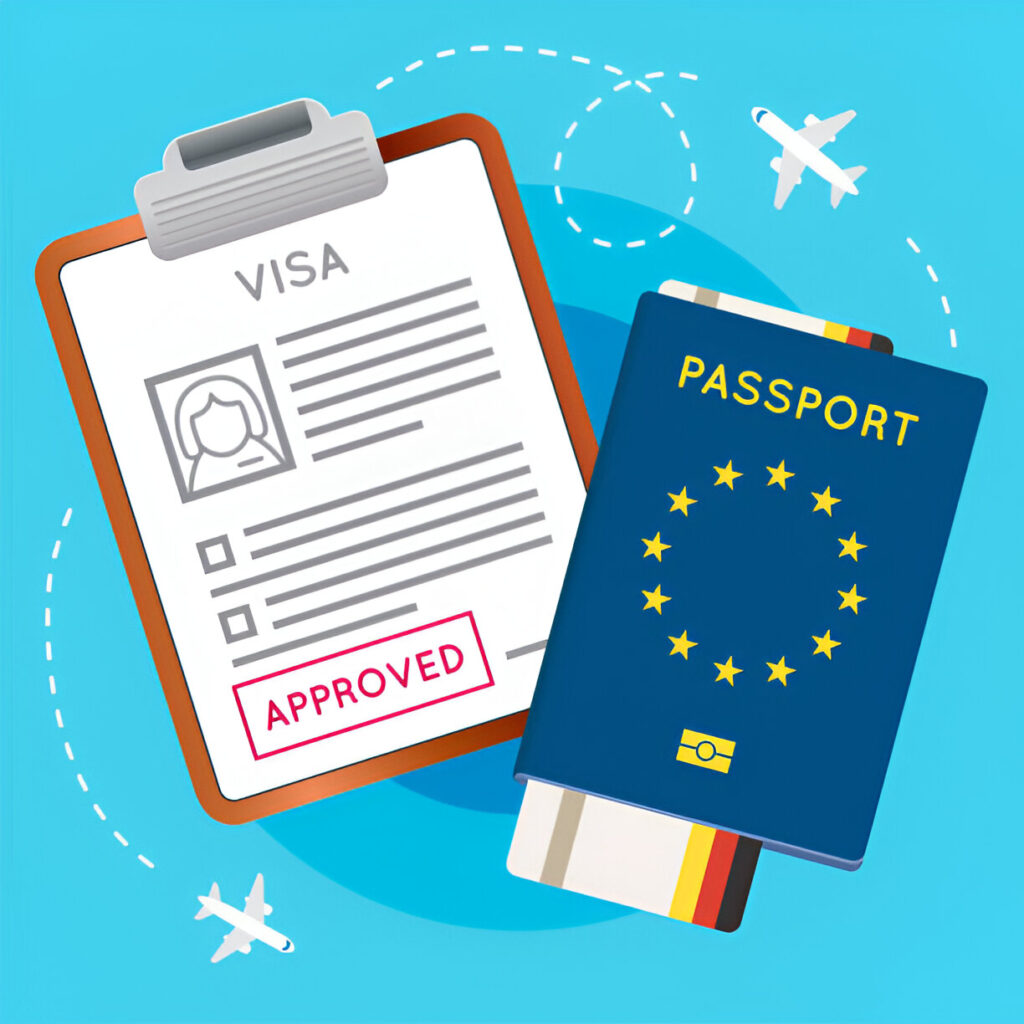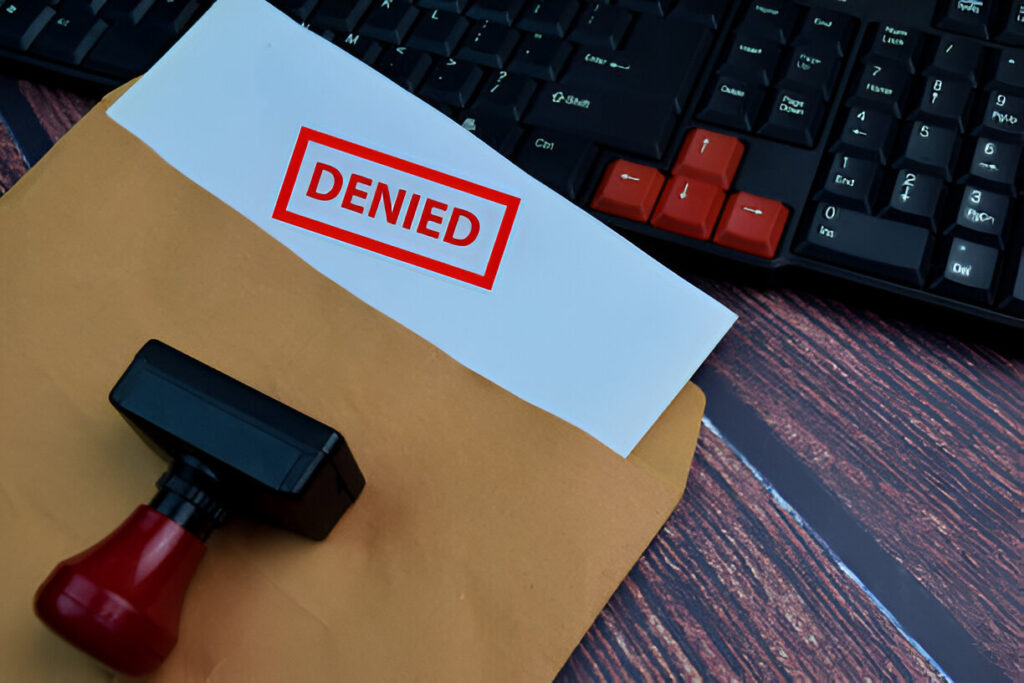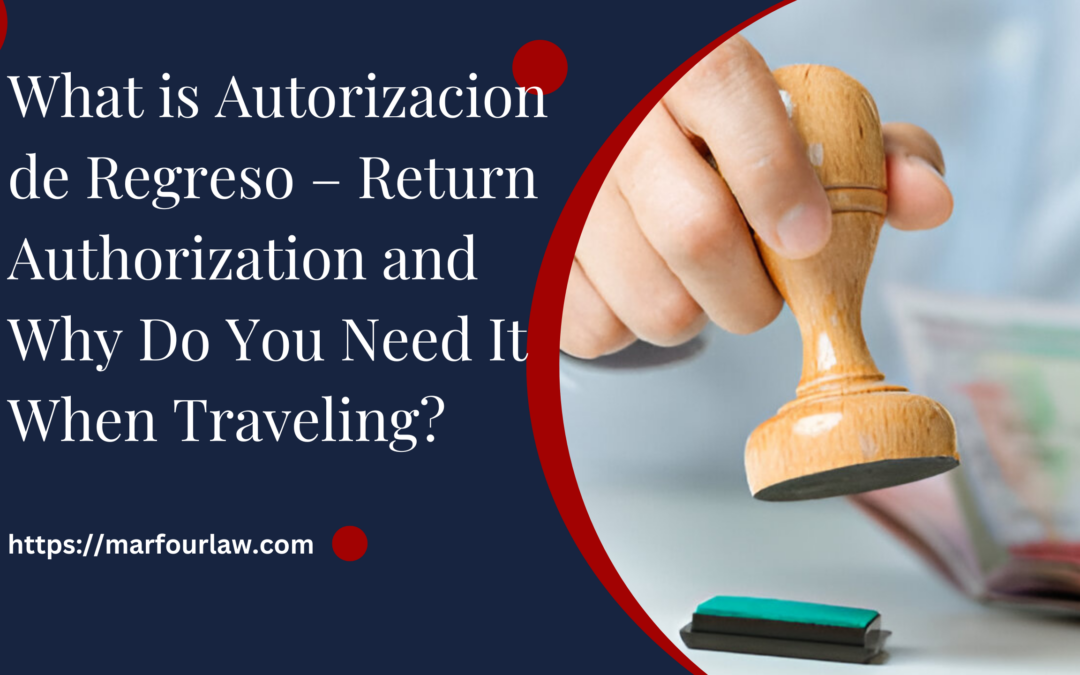Autorizacion de Regreso – Return Authorization is an essential document for many who find themselves needing to return to Spain after leaving the country temporarily. But what exactly does this mean for you, and why should you care? In this blog, we’ll break down what this authorization entails, why it’s necessary, and how it affects your travels. Whether you’re a resident or just visiting, understanding this can make your journey smoother. Let’s dive into this topic and unravel the details.
What is Autorizacion de Regreso and Why Does It Matters?
If you’re planning to travel or move abroad and you’ve got residency status in Spain, you might come across the term “Autorización de Regreso.” This concept is crucial if you’re looking to keep your residency permit intact while you’re out of the country. Let’s break down what it is and why it’s so important.
What Is Autorización de Regreso?
Autorización de Regreso, or Return Authorization, is a document issued by the Spanish authorities. If you hold a Spanish residency permit and need to leave Spain for an extended period, this document allows you to return without jeopardizing your residency status. Think of it as a safety net that ensures your legal residency remains valid even when you’re abroad.
When you apply for this authorization, you’re essentially asking for permission to be away from Spain while maintaining your right to return. It’s a bit like holding onto a reserved seat at your favorite restaurant – just because you step away for a bit doesn’t mean your spot is taken.
Why Do You Need It?
The Autorización de Regreso is vital for anyone holding a Spanish residency permit. Without it, if you stay outside of Spain for more than six months, you risk losing your residency status. This rule is in place to prevent people from maintaining residency without actually residing in Spain. If you plan to be away for a while, this document is your way of telling the authorities, “I’ll be back, and I plan to keep my residency.”
Imagine you’ve been living in Spain but need to travel for a family event or work opportunity. Without this authorization, your residency status could be at risk if you stay away for too long. The document ensures that you won’t face complications upon your return.
How to Apply for Autorización de Regreso?
Applying for this authorization is a relatively straightforward process. Typically, you need to go to the local immigration office or the police station in Spain and fill out an application form. You’ll need to provide proof of your residency and details about your travel plans. It’s like applying for a visa, but it’s specifically designed to protect your residency status rather than grant new entry rights.
You’ll want to apply well before your departure date to avoid any last-minute issues. If you’re planning on being away for an extended period, it’s a good idea to get this sorted ahead of time.
Key Points to Remember
- Timing: Apply for the Autorización de Regreso before you leave Spain. Waiting until the last minute could lead to delays or complications.
- Duration: This authorization is generally valid for a specified period. Make sure you understand how long it will last and plan your return accordingly.
- Documentation: Keep all related documents handy. This includes proof of residency, travel itinerary, and any other paperwork the authorities might require.
In summary, the Autorización de Regreso is a crucial document for anyone with Spanish residency who plans to be away from Spain for an extended period. It helps you maintain your residency status and avoid potential complications upon returning. If you’re heading out of Spain, make sure to get this authorization sorted to ensure your return goes as smoothly as possible.
How Do You Say Come Back in Spanish and What Does Regreso Mean?
If you want to tell someone to return or come back in Spanish, the phrase you’ll use is “vuelve”. This word is derived from the verb “volver,” which means “to return” or “to come back”.
When you use “vuelve,” you directly address someone and ask them to return. For example, if you’re talking to a friend who has just left and wants them to return, you might say, “¡Vuelve pronto!” which means “Come back soon!”

What Does “Regreso” Mean?
On the other hand, “regreso” is a noun that means “return” or “coming back”. It’s often used to talk about the act of returning itself, rather than directly asking someone to return. For example, if someone asks about your plans, you might say, “Mi regreso está previsto para el lunes,” which translates to “My return is scheduled for Monday.”
While “vuelve” is used to give a direct command or request, “regreso” is more about referring to the act or event of coming back. You might use it in sentences like “Estoy esperando tu regreso,” meaning “I’m waiting for your return.”
Differences Between “Vuelve” and “Regreso”
So, what’s the difference between “vuelve” and “regreso”?
- “Vuelve” is the verb form used for telling someone to return. It’s direct and immediate, often used in conversation.
- “Regreso” is a noun that talks about the event or action of returning. It’s used more in formal or descriptive contexts, not for making direct requests.
Practical Examples
Imagine you’re at a party, and your friend leaves early. You might say, “¡Vuelve ya!” meaning “Come back now!” But if you’re talking to someone about when they’ll be back from their trip, you might say, “Estoy emocionado por tu regreso,” which means “I’m excited about your return.”
In everyday use, “vuelve” is your go-to phrase when you want to ask or tell someone to come back, while “regreso” is useful for discussing the idea or plan of returning. They both serve different purposes but complement each other well in conversations about coming back.
Why Timing is Crucial When Applying for Autorizacion de Regreso?
When it comes to applying for an Autorización de Regreso (Return Authorization) in Spain, timing can make or break your plans. This document is essential if you need to leave Spain temporarily and return without losing your residency status. Let’s dive into why timing is so important and what you should keep in mind.
Basics of Autorización de Regreso
Before jumping into the timing aspect, let’s cover this authorization. The Autorización de Regreso allows non-EU residents with long-term residence permits to travel outside Spain and return without losing their residency rights. Think of it as your golden ticket to re-enter the country without hassle.
Expiry and Processing Times
One key reason timing is critical is the processing time. Applications for this authorization can take a few weeks to process, depending on the workload of the immigration office and the complexity of your situation. If you apply too late, you might find yourself in a situation where you can’t travel when you planned. This could lead to delays in your return or even issues with your residency status.
Your Travel Plans and the Authorization Window
The Autorización de Regreso typically has a validity period, often up to 90 days from the date it is issued. This means that if you apply too early, you risk having the authorization expire before you return. Conversely, applying too late means you might not get the authorization in time for your planned travel. Balancing this window is crucial to avoid any travel disruptions.
Avoiding Administrative Bottlenecks
Immigration offices can be quite busy, and unexpected administrative delays are not uncommon. Applying well in advance helps you buffer against these potential delays. If you wait until the last minute, you might be stuck in a bureaucratic bottleneck, jeopardizing your travel plans and residency status.
Impact on Your Residency Status
For those new to the residency process, it’s important to know that frequent or long absences from Spain might raise questions about your residency. By ensuring you have the right paperwork well in advance, you avoid complications that could come from being away too long without proper authorization. This helps you maintain your residency status smoothly.
Plan to Avoid Stress
No one likes last-minute stress, especially when it involves important legal documents. Planning your application for the Autorización de Regreso well ahead of time ensures a smoother, less stressful process. Think of it like setting an alarm to wake up on time for an important meeting—getting things done early helps you avoid rushing and potential issues.
What Documents Do You Need for Autorizacion de Regreso?
If you’re planning to leave Spain temporarily and need to return, you’ll need to apply for an Autorización de Regreso (Return Authorization). This document ensures that you can re-enter Spain without losing your residency status. Here’s a detailed guide on what you need to prepare:

Valid Passport or Travel Document
Your first essential document is a valid passport. Ensure it’s not expired and has enough validity for your travel period. A valid passport is crucial for international travel and re-entry if you’re not a Spanish national. If you’re a resident of Spain and your passport is close to expiring, you might need to renew it before applying for the Autorización de Regreso.
Residency Card
You must have your Spanish residency card (Tarjeta de Residencia) ready. This card proves your legal residency status in Spain. It should be valid and not expired. If your residency card is close to expiring, it’s wise to renew it before applying for the return authorization.
Proof of Residency in Spain
You’ll need to provide proof that you have a residence in Spain. This can include a recent utility bill, a rental contract, or a property deed. It would be best to show you have a place to return to and reside in Spain.
Travel Itinerary
Include a detailed travel itinerary with your application. This should outline your travel dates, destinations, and reasons for your trip. It helps the authorities understand your travel plans and ensures that there’s a record of your intended departure and return.
Completed Application Form
Fill out the Autorización de Regreso application form. You can usually get this form at the nearest police station or immigration office. Make sure to fill it out completely and accurately. Incomplete forms may delay the process or result in a denial.
Receipt of Paid Fee
There is typically a fee associated with applying for the Autorización de Regreso. Ensure you pay this fee and keep the receipt as proof of payment. The fee amount and payment method can vary, so check with the local authorities for the most up-to-date information.
Additional Supporting Documents
Depending on your situation, you might need to provide additional documents. For example, if you’re traveling for medical reasons, you may need to include medical certificates. If you’re traveling for business, a letter from your employer might be required. Check with the authorities to see if any additional documents are necessary.
Where Do You Apply for Autorizacion de Regreso?
If you’re looking to return to Spain after a trip abroad but don’t have your residency card, you must apply for an Autorización de Regreso (Return Authorization). This document allows you to re-enter Spain and resume residency without hassle. Here’s a simple guide to help you through the process.
First things first, let’s clarify what this authorization is. The Autorización de Regreso is a permit that lets you return to Spain if you’re a resident but don’t have your residency card. It’s like a temporary pass, ensuring your residency status remains intact outside the country.
How Do You Apply for It?
You need to follow a few steps to apply for the Autorización de Regreso. Here’s how to get it done:
- Visit the Local Police Station or Immigration Office: Head to your nearest police station or immigration office in Spain. This is where you’ll need to submit your application. If you’re already abroad, you’ll have to go to the Spanish consulate or embassy in the country where you are.
- Gather Your Documents: Before you go, make sure you have all the necessary documents. Typically, you’ll need your passport, proof of residency in Spain, and any other identification or paperwork supporting your resident status. Checking with the specific office or consulate for additional requirements is a good idea.
- Fill Out the Application Form: You’ll need to complete an application form for the Autorización de Regreso at the office. This form asks for basic information about you and your residency. Don’t worry; the staff can help if you’re unsure about any part.
- Submit Your Application: After completing the form and gathering your documents, submit everything to the office. They will process your application and issue the authorization. This might take a few days, so plan your travel accordingly.
- Receive Your Authorization: You’ll receive the Autorización de Regreso after processing. Keep this document safe; you’ll need to present it when you return to Spain.
Important Tips to Remember
- Apply Early: Don’t wait until the last minute to apply. Give yourself plenty of time to get the authorization before your planned return.
- Check Requirements: Different offices might have slightly different requirements or procedures, so it’s wise to double-check what’s needed for your specific situation.
- Keep Documents Handy: When you get your Autorización de Regreso, keep it in a safe but accessible place. You’ll need it when you re-enter Spain.
Applying for the Autorización de Regreso is straightforward if you follow these steps. By visiting the right office, preparing your documents, and filling out the application form, you’ll ensure a smooth return to Spain. If you have any doubts or need specific guidance, don’t hesitate to contact the local immigration office or Spanish consulate for assistance. Safe travels!
What Happens If Your Application Is Denied?
If your application is denied, it can be a stressful experience, but knowing what steps to take next can help you handle the situation effectively. Here’s a detailed guide on what happens and how to proceed:

Receiving the Denial Notice
When your application is denied, you’ll receive a formal notice from the organization or authority that processed it. This notice usually includes the reasons for the denial and may provide details on how to appeal the decision or reapply.
Review the Denial Reason
Carefully read the denial notice to understand the specific reasons behind the decision. Common issues might include incomplete information, missing documents, or not meeting eligibility criteria. Sometimes, the reasons might be more specific, such as errors in your application or lack of necessary evidence.
Explore Your Options
Depending on the application and the organization, you might have several options:
- Appeal: If you believe the decision was incorrect or you have new evidence, you might be able to appeal. The appeal process typically involves submitting additional information or a written explanation.
- Reapply: In some cases, addressing the issues in the denial notice and submitting a new application may be the best course of action. Ensure all required information and documents are included and correct any mistakes.
- Seek Help: Consulting a professional or legal advisor can be beneficial, especially if the application was complex. Marfour International Law Firm can provide expert guidance in these situations, helping you understand the reasons for the denial and assisting with the appeal or reapplication process.
Prepare for Future Applications
Use the feedback from the denial to improve future applications. Review all requirements thoroughly, ensure you meet all criteria, and double-check that your forms are complete and accurate before submission.
Stay Positive and Persistent
A denied application isn’t the end of the road. Many successful applicants have faced rejections before achieving their goals. Stay positive and view the experience as a learning opportunity. Persistence is often crucial in overcoming setbacks. Don’t let a denial discourage you. Each application process is a step closer to your goal, and each setback is a chance to refine your approach.
Dealing with a denied application can be challenging, but it’s not the end. By understanding the reasons for the denial, exploring your options, preparing thoroughly for future applications, and staying positive, you can improve your chances of success. For additional support, consider reaching out to Marfour International Law Firm for expert advice and assistance. Remember, every application is a learning experience, and persistence can lead to success.
FAQs
Can I travel without Autorizacion de Regreso?
No, if your residency renewal is still in process, you need this authorization to re-enter Spain. Without it, you might be denied entry at the border, even if your residency is legitimate.
How long does the application process take?
The application process typically takes a few weeks, depending on the workload at your local immigration office. It’s best to apply well in advance to avoid any delays.
What happens if my authorization expires while I’m abroad?
If your Autorizacion de Regreso expires while you’re still abroad, you may face significant difficulties re-entering Spain. You should plan your travel carefully and ensure the authorization covers your entire trip.
Can I apply for Autorizacion de Regreso online?
In some regions, it’s possible to submit your application online, but this depends on the local immigration office’s procedures. Always check the specific requirements for your area.
Is Autorização de Regreso required for EU citizens?
No, EU citizens do not need this authorization. It is specifically for non-EU residents who are waiting for their residency renewal to be processed.
Conclusion
Autorizacion de Regreso – Return Authorization is a crucial document for non-EU residents of Spain who need to travel abroad while their residency renewal is in process. It’s not just a formality; it’s a vital piece of your travel puzzle. By understanding the importance of this authorization, gathering the necessary documents, and applying in time, you can avoid any unexpected roadblocks. Whether you’re planning a vacation or dealing with an emergency, having this authorization ensures that you can return to Spain smoothly. So, make sure you’re prepared – because when it comes to travel, it’s always better to be safe than sorry.

